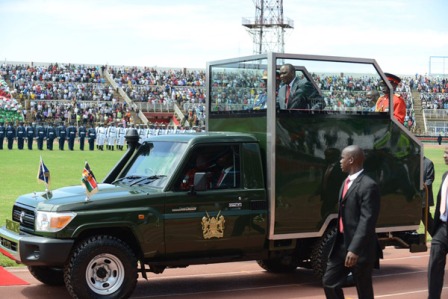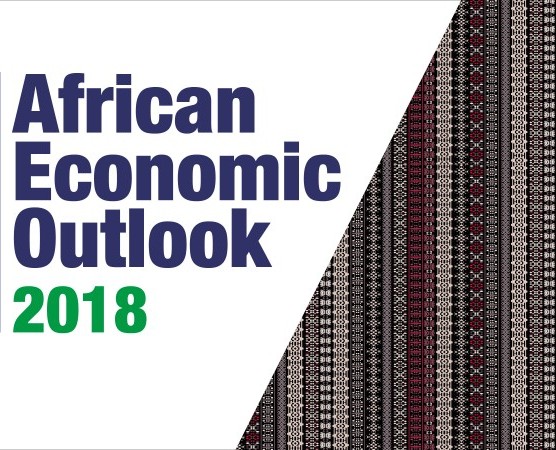By Bethsheba Achitsa
Published September 18, 2010
DISCOP Africa, an annual television content distribution, programming and co-production market for growing world regions, just held its 4th edition in Nairobi, Kenya (September 1-3, 2010). It brought together broadcasters, advertisers, producers, and distributors to focus on the buying and selling of TV programmes, channels and technical services. The executive manager of the organisation, Cherise Barsell, speaks to BETHSHEBA ACHITSA about DISCOP Africa and what it does.
Briefly explain what DISCOP Africa is and what it is currently doing in Africa?
Launched in 2009 and already in its 4th edition, the DISCOP Africa TV content market brings together broadcasters, advertisers, producers, and distributors for a three-day event focused on buying and selling of television programmes, channels, and technical services. The event is also complimented by conferences, country highlights, the DISCOPro pitching and training session for producers, and lively networking events.
Why does DISCOP Africa always host two events in two regions–West and East Africa–in a year?
When we first entered the market, our participants needed two markets a year to establish their new business relationships and to finalise their contracts. Now that our participants regularly attend our event and their businesses now run more smoothly, we will only have one event each year starting from February 2011.
RELATED: Egypt’s Islamists Won’t Ban Tourism
What is the significance of Dakar and Nairobi to the event as you always host DISCOP Africa events in these two African cities?
The most important criterion for us is accessibility. Dakar and Nairobi were both chosen because of the number of direct flights within Africa and from abroad. Entry visas also didn’t pose much of an issue for our participants, who either didn’t need them or who could pick them up at the point of entry. DISCOP Africa 5, which takes place February 9-11, 2011, will be held in Accra, Ghana for this same reason and also due to Ghana’s dynamic TV and production market. Accra also bridges the divide between English- and French-speaking Africa since it is located in the heart of French-speaking countries in West Africa but is itself English-speaking.
What are some of the activities taking place alongside exhibition?
Each edition of DISCOP Africa has a number of important conference sessions and events lined up to enable our participants to better understand the market and developing trends, in addition to maximising their networking possibilities through dinners, cocktail parties, and nights out dancing. For example, this year’s Gala Dinner was sponsored by Africa Movie Academy Awards of Nigeria. Also during the Nairobi market we helped broadcasters understand how to improve their brands through the conference session, ‘The Importance of Channel Identity.’ through a country focus session on Nigeria we also helped our distributors understand one of the most dynamic markets on the continent.
Furthermore, we partnered with Lola Kenya Screen to bring a group of local child producers, judges, journalists and event organisers and presenters to learn about the African TV market and to meet with African producers and distributors of children’s content. While at the market they had opportunity to write about their experience in our magazine, DISCOP Link. Daystar University also brought a group of students to help prepare their up-and-coming coming TV professionals for a real business atmosphere.
RELATED: High Airline Accident Rate in Africa Still a Concern
Other than for the three days that you host markets in Nairobi and Dakar, what do you do for the rest of the year?
Immediately after the market we help clients’ follow-up with their contracts. We also organise DISCOP East, which has been held every June in Budapest, Hungary, for the last 20 years. Next year, 2011, we will also have our first Middle East edition, DISCOP Istanbul, in March.
So far what have been DISCOP Africa’s achievements?
We have been able to create the continent’s first on-going TV content market, regularly bringing together 90% of sub-Saharan Africa’s top broadcasters. We have introduced broadcasters to new content and enabled them to truly manage their airtime by putting the possibility to negotiate in their hands. We are also working with industry leaders to launch Africa’s first anti-piracy association, Africa Media Rights Watch, which will hold its first annual general meeting at DISCOP Africa 5 next year.
Your events always take place in 5-Star hotels; does this not, to some extent, limit attendance?
It does not limit any one at all as our events always takes place in a central area, with a number of hotel options for all budgets nearby. We want people to have maximum comfort during the event, but they make their hotel reservations on their own.
What is your opinion about content distribution and programming in developing regions?
Thanks to DISCOP Africa, the market is opening quite a bit and as competition increases in each country, broadcasters have to seriously take a look at what their channels stand for and what their audience are looking for.
RELATED:Â Why Hefty Salary Increment for Kenyan Parliamentarians is Unjustified
Do you conduct any activities that could encourage content-development in the region besides content-exhibition?
Definitely; it is important to us that we have a dynamic local distribution market and for the last three editions we have created programmes to assist producers in developing, financing, and selling their content. DISCOP Africa 4 hosted the first DISCOPRO in Africa. DISCOPRO is a training and pitching programme, allowing producers with new projects to connect to African and international commissioning editors. M-NET, KBC, and Canal France International were among the stations that provided panel members to look at the projects to commission. Independent African producers also got huge discounts for a stand in the African producers’ pavilion, where they met with broadcasters from across Africa and screened their content.




